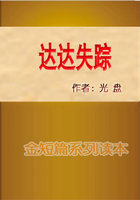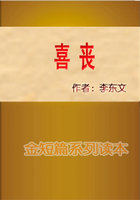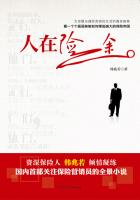The A vocabulary consisted of the words needed for the business of everyday life — for such things as eating, drinking, working, putting on one’s clothes, going up and down stairs, riding in vehicles, gardening, cooking, and the like. It was composed almost entirely of words that we already possess words like hit, run, dog, tree, sugar, house, field — but in comparison with the present-day English vocabulary their number was extremely small, while their meanings were far more rigidly defined. All ambiguities and shades of meaning had been purged out of them. So far as it could be achieved, a Newspeak word of this class was simply a staccato sound expressing one clearly understood concept. It would have been quite impossible to use the A vocabulary for literary purposes or for political or philosophical discussion. It was intended only to express simple, purposive thoughts, usually involving concrete objects or physical actions.
The grammar of Newspeak had two outstanding peculiarities. The first of these was an almost complete interchangeability between different parts of speech. Any word in the language (in principle this applied even to very abstract words such as if or when) could be used either as verb, noun, adjective, or adverb. Between the verb and the noun form, when they were of the same root, there was never any variation, this rule of itself involving the destruction of many archaic forms. The word thought, for example, did not exist in Newspeak. Its place was taken by think, which did duty for both noun and verb. No etymological principle was followed here: in some cases it was the original noun that was chosen for retention, in other cases the verb. Even where a noun and verb of kindred meaning were not etymologically connected, one or other of them was frequently suppressed. There was, for example, no such word as cut, its meaning being sufficiently covered by the noun-verb knife. Adjectives were formed by adding the suffix-ful to the noun-verb, and adverbs by adding -wise. Thus for example, speedful meant“rapid”and speedwise meant“quickly”. Certain of our present-day adjectives, such as good, strong, big, black, soft, were retained, but their total number was very small. There was little need for them, since almost any adjectival meaning could be arrived at by adding-ful to a noun-verb. None of the now-existing adverbs was retained, except for a very few already ending in-wise: the -wise termination was invariable. The word well, for example, was replaced by goodwise.
In addition, any word — this again applied in principle to every word in the language — could be negatived by adding the affix un- or could be strengthened by the affix plus-, or, for still greater emphasis, doubleplus-. Thus, for example, uncold meant“warm”, while pluscold and doublepluscold meant, respectively,“very cold”and“superlatively cold”. It was also possible, as in present-day English, to modify the meaning of almost any word by prepositional affixes such as ante-, post-, up-, down-, etc. By such methods it was found possible to bring about an enormous diminution of vocabulary. Given, for instance, the word good, there was no need for such a word as bad, since the required meaning was equally well — indeed, better — expressed by ungood. All that was necessary, in any case where two words formed a natural pair of opposites, was to decide which of them to suppress. Dark, for example, could be replaced by unlight, or light by undark, according to preference.
The second distinguishing mark of Newspeak grammar was its regularity. Subject to a few exceptions which are mentioned below all inflexions followed the same rules. Thus, in all verbs the preterite and the past participle were the same and ended in-ed. The preterite of steal was stealed, the preterite of think was thinked, and so on throughout the language, all such forms as swam, gave, brought, spoke, taken, etc., being abolished. All plurals were made by adding-s or-es as the case might be. The plurals of man, ox, life, were mans, oxes, lifes. Comparison of adjectives was invariably made by adding-er,-est (good, gooder, goodest), irregular forms and the more, most formation being suppressed.
The only classes of words that were still allowed to inflect irregularly were the pronouns, the relatives, the demonstrative adjectives, and the auxiliary verbs. All of these followed their ancient usage, except that whom had been scrapped as unnecessary, and the shall, should tenses had been dropped, all their uses being covered by will and would. There were also certain irregularities in word-formation arising out of the need for rapid and easy speech. A word which was difficult to utter, or was liable to be incorrectly heard, was held to be ipso facto a bad word: occasionally therefore, for the sake of euphony, extra letters were inserted into a word or an archaic formation was retained. But this need made itself felt chiefly in connexion with the B vocabulary. Why so great an importance was attached to ease of pronunciation will be made clear later in this essay.
The B vocabulary.
The B vocabulary consisted of words which had been deliberately constructed for political purposes: words, that is to say, which not only had in every case a political implication, but were intended to impose a desirable mental attitude upon the person using them. Without a full understanding of the principles of Ingsoc it was difficult to use these words correctly. In some cases they couId be translated into Oldspeak, or even into words taken from the A vocabulary, but this usually demanded a long paraphrase and always involved the loss of certain overtones. The B words were a sort of verbal shorthand, often packing whole ranges of ideas into a few syllables, and at the same time more accurate and forcible than ordinary language.
The B words were in all cases compound words.















